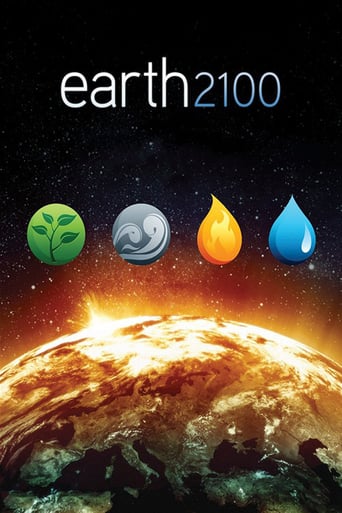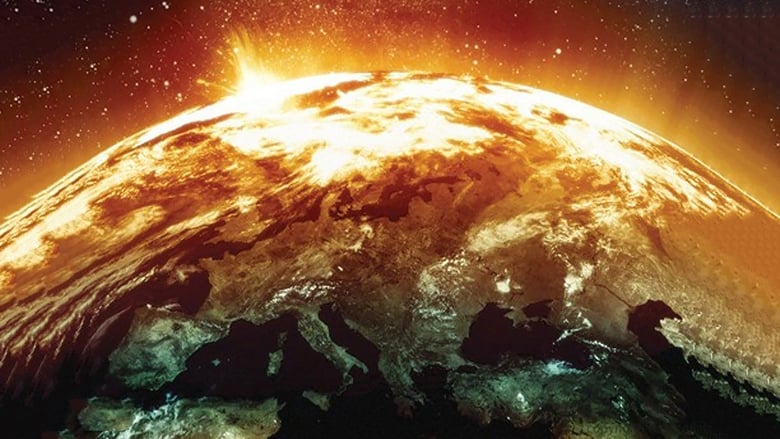Experts say over the next hundred years the "perfect storm" of population growth, resource depletion and climate change could converge with catastrophic results. The scenarios in Earth 2100 are not a prediction of what will happen but rather a warning about what might happen.


Similar titles
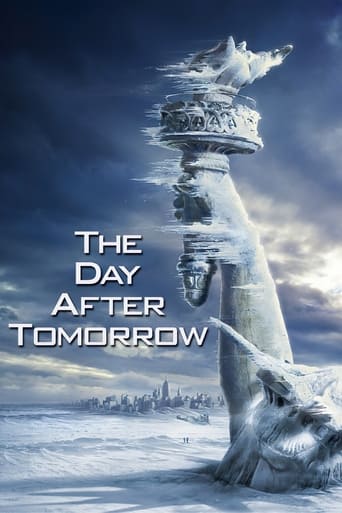

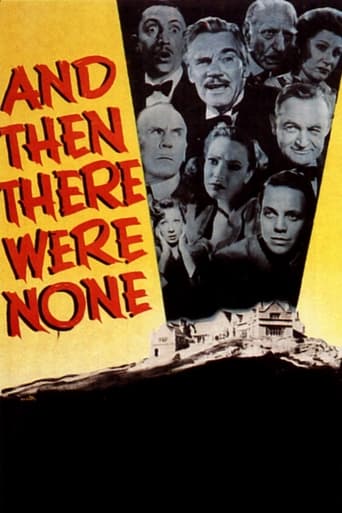
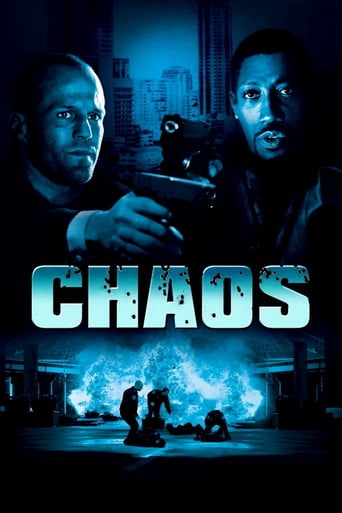
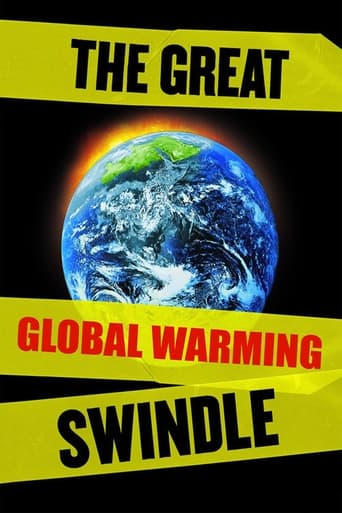
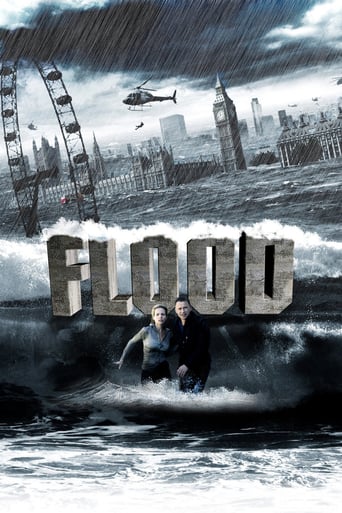
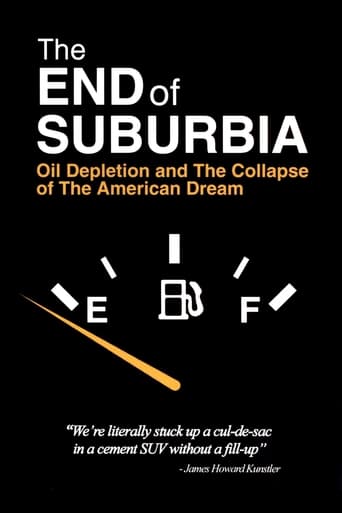
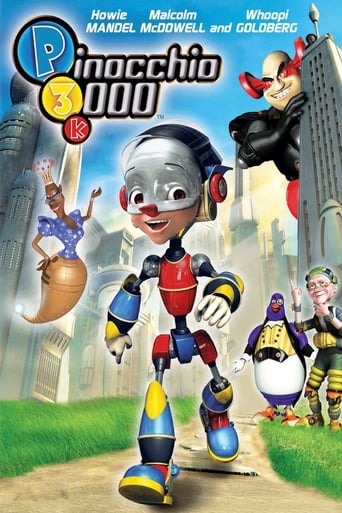
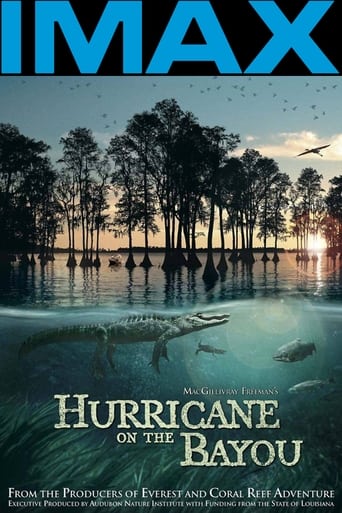

Reviews
This film was made in 2010 but great to watch now. It presents a fictionalized worst-case scenario thru the eyes of "Lucy" who is born in 2009 and by 2100 is the oldest person alive in a dystopian world. Topics covered are peak oil (it gets wrong due to fracking), drought (it pretty much nails), heat-waves (accurate), the flooding of NYC and migrants (eerily prescient) and a host of other issues still too soon to determine such as tropical diseases popping up in temperate zones, sea-level rise, the arctic methane burp, melting of Greenland. The film is US-centric, so might be frustrating for people in other countries who are tired of seeing us place ourselves at the forefront all the time. But it does mention China, India and Mexico among others -- trying to show the global extent of the problems. The film also features impressive experts such as E.O. Wilson and Jared Diamond. The greatest weakness of this chilling and very important warning message is in the "solutions" presented at the end. Like most, it suggests using compact florescent bulbs and everyone just trying harder instead of specific policy, tax and economic reforms that would put in place the incentives and policy machinery needed for sustainable economic systems. In that regard, we could badly use a sequel/remake/revisiting of this crucial topic.
This show was great. In a very short time has proved humans with a advanced brain, stand upright, have thumbs and can speak has become the perfect destroying machine. Humans destroy everything they come in contact with. The best thing to happen to this plant is for the entire human species to be destroyed, this film was great as it shows mankind is no good for this planet. The world is 4.5 billion years old, if there is a God, why would he wait so long to put humans on the planet. Look what mankind has done in less then 300 years, what a joke, mankind was the worst thing to ever happen to earth. If there is a God, what a disappointment mankind must be to him, destroying his planet and having no regard what so ever for nature or the millions of creatures on this planet. Anyone who is in disagreement with this show and does not see what humans have done to this once so beautiful planet is in a fog as mankind deserves whatever ever nature throws at humans, we are all guilty of destroying this beautiful planet and it is all GREED driven.
Seriously, this film's main recommendation would be gleefully received by Ted Kaczynski. Basically we must return to an agrarian society or we are all going to die. Was Al "I really am detached from reality and have been a spoiled tantrum throwing child all my life" Gore the ghostwriter for this trash? ABC/Disney have really lost their minds. Disney is trying to take political correctness and turn it into a 21st century Nazi-mind-control theology that is ruining their company and the planet along with it.The people behind this project should be ashamed of themselves as they express their misanthropic self-hatred with every frame and word in this production.Anyone who watches this more than once will probably get brain cancer from their mind's own attempt at fixing planet earth by killing it's one living devil: Mankind.
Global warming, flooding, droughts, natural disasters, diseases, over-population, refugees, peak oil, resource wars, why not throw all of these things together centered around a single character and then conclude the movie by saying that we need to create a green and environmental future?This film does not establish a clear relation between each of these problems, it just jumps from one from issue to another, and it can be quite confusing along the way. Besides that, things are centered far too much on America and the life of this fictional character: Lucy. I don't think they mention Africa, South America, The Middle East, or Australia, much or at all. They talk about China and India a little: apparently they declared a resource war against one another, however, they don't go into it that much after that.In addition to this, there have been oil shortages in the world before. See {The Power of Community: How Cuba Survived Peak Oil (2006)}. People would import lots of bicycles as the price of gasoline for cars goes up, they would start growing their own food as the price of food goes up, and so on. People wouldn't be senselessly driving in their cars to get super-expensive gas as is implied here. They over-dramatize every issue to a 'worst case scenario', especially the issue of peak oil.How exactly did the population go to 9 billion and then down to 2.7 billion and where exactly were these population changes distributed? In order to support a larger population, such as one that has 9 billion people, you would undoubtedly need advances in agriculture and architecture, so that bigger buildings can be created and so that more food can be produced. Besides that there are things which are limiting factors to the expanse of the population, such as the birth control programs in China and AIDS in Africa.Moving on, was there any good reason that those sea-barriers had to fail? I think they would have made all sorts of precautions to assure that they would work correctly, and they would predict the event before hand so that they could drop the sea-barriers without resistance. Furthermore, if they wanted to construct a modern green city, they most certainly wouldn't do it around New York, when New York is immediately threatened by the floods and diseases. Instead, they would most certainly create the city around Siberia or Canada, because in this future those areas would become warmer and more habitable, so they would make for an ideal place to create a "beacon of hope" for this post-apocalyptic society.One thing that was really disturbing is the communications breakdown, and the idea that the scientific breakthroughs could be lost. One of the people interviewed for this show said "if it is some electronic based thing it could all be lost" considering modern storage capacities, you can store so much data that there is little threat to the ability to successfully store it. Sure a nuclear apocalypse, or a massive raise in the Earth's sea-levels could seriously threaten life and civilization as we know it, however, I do not think it poses much of any threat to digital data or our communications systems.We could easily store all of our scientific breakthroughs/literature/videos/software on a couple of hard-drives and put them in spacecrafts/satellites that would be completely impervious to all Earthly matters, in addition to this these spacecrafts could send radio waves down to Earth. This could form the basis of a communication system used to reconstruct human society after such an apocalyptic event as the one this film depicts.In conclusion, this movie recommends that people change their habits immediately in order to go green, to get solar panels, and wind power. These are things we have probably already heard many times before so this ending segment probably won't be interesting to most people. They actually pose no real solutions to most of the issues presented in this film: natural disasters, over-population, peak oil etc.
